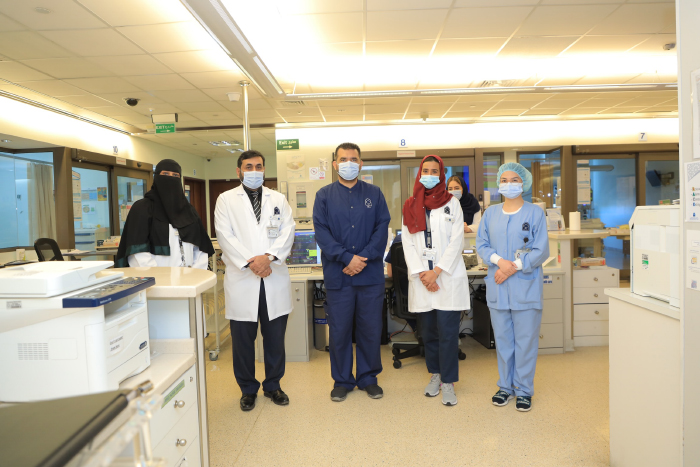A 35-year-old patient needed to undergo surgery, but surgeons in some hospitals refrained from performing the procedure because the patient has a blood condition that makes it difficult to perform surgery. After visiting the Emergency Department at the International Medical Center (IMC) following a severe pain crisis, the patient was referred to Dr. Reem Al Qunfudi, hematology consultant at IMC. He was found to suffer from sickle cell anemia, with symptoms like pain in the bones and different body parts such as the back, fever, trembling, and periodic pain episodes. On a pain scale of 1 to 10, the patient had a score of 10. He was taking some of the most powerful and effective painkillers. The patient’s condition prevented him from undergoing any surgery unless the sickle cell count was below a certain level. In fact, sickle cell anemia could be life-threatening in case of surgery and has to be put under control for him to be ready for any surgical procedure. In addition, the patient also suffered from thalassemia, a genetic blood disorder. The patient also visited the IMC Pain Management Center and was diagnosed with lower limb pain.
He was given strong analgesics but did not benefit from them. As such, Dr. Reem Al-Qunfudi decided to perform a blood transfusion procedure (Therapeutic Apheresis -Red Cell Exchange) using state of art machine on the patient in the Intensive Care Unit (ICU), first to alleviate his pain and reduce the hospitalization rate, and second to enable him to undergo surgery. Taking part in the procedure alongside Dr. Reem Al-Qunfudi, Hematology Consultant, were: Dr. Ahmad Shaikh, Blood Bank Physician; Dr. Yousef Alsayed, Consultant, ICU; and Dr. Abdel Nasir Kibeida, Consultant, General Surgery. The process involved a blood transfusion to the patient through which sickle cell blood cells were targeted, reduced, and replaced with red blood cells. This helped reduce the symptoms and complications rate (by reducing sickle cells in body) from 73% to 39%, thus allowing the patient to undergo his surgery without problems.
IMC is specialized in this type of blood-related operations in terms of: 1- Speed, as the patient is admitted to the ICU within one day and discharged by the third day. 2- Blood availability, as the laboratory is fully ready to provide blood at all times, unlike other hospitals where patients receive blood from multiple donors. 3- Ensuring that the donated blood matches the patient’s own blood type and suits his condition, especially in the long term if the blood comes from donors. The patient’s blood often becomes a mixture of different types after years of treatment, which could make finding new donors later on difficult.


COMMENTS